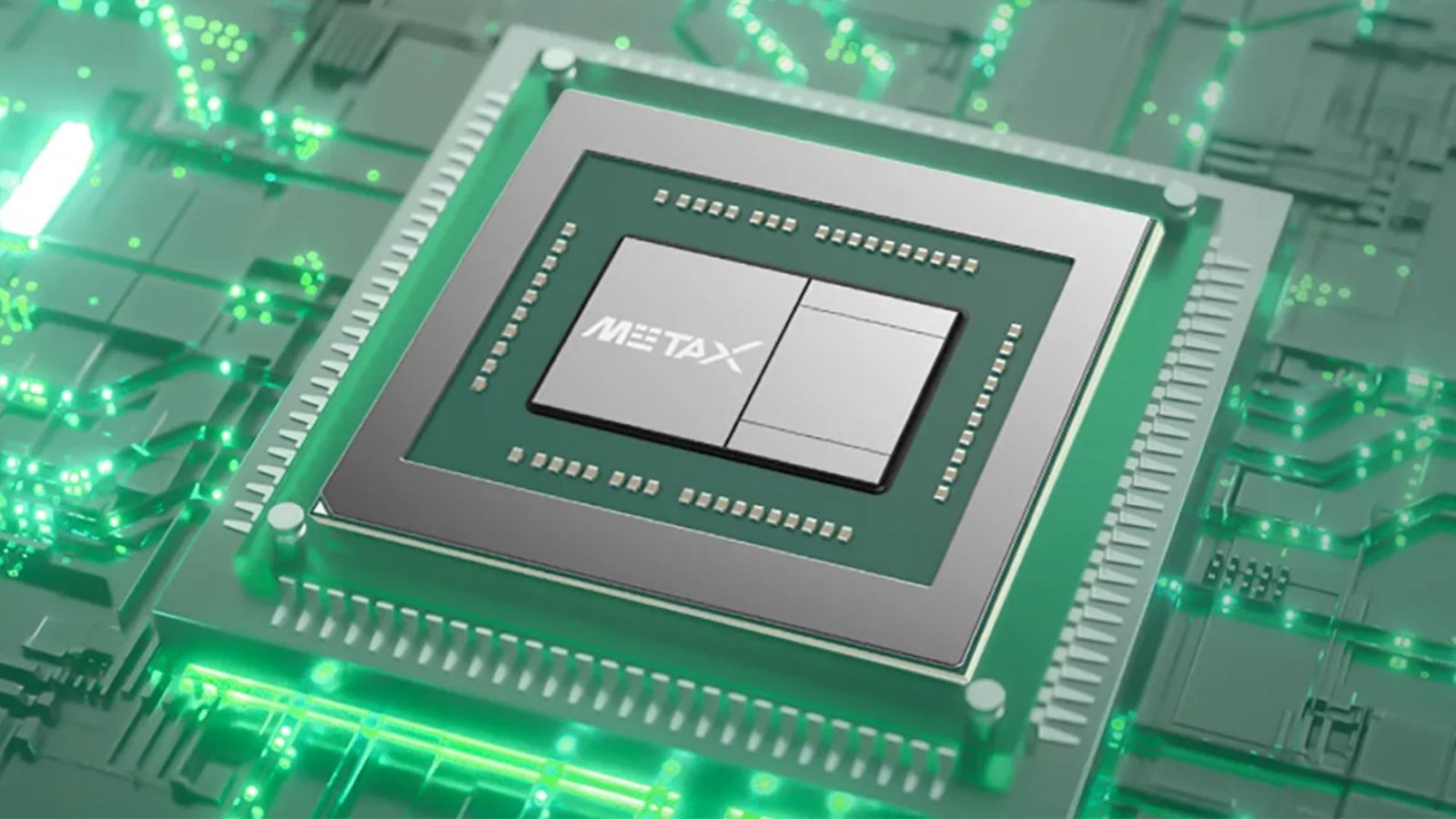Tools & Platforms
Mississippi State University Partners with Amazon Web Services to Launch AI initiative

Mississippi State leads the SEC in adopting AWS technology to enhance student engagement
Contact: Sid Salter
STARKVILLE, Miss.—Mississippi State University (MSU) has announced a groundbreaking partnership with Amazon Web Services (AWS), becoming the only university in Mississippi—and the first in the Southeastern Conference (SEC)—to implement AWS’s artificial intelligence platform to enhance engagement with prospective students, alumni, and supporters.

“As Mississippi’s leading research university, we take pride in science, technology, engineering, and mathematics—along with high-performance computing, data science, cybersecurity studies, agriculture and forestry, and business,” said MSU President Mark E. Keenum. “From that standpoint, this exciting partnership with a world-class organization like AWS is a great fit for the MSU community. We appreciate Amazon’s confidence in our university.”
In collaboration with data scientists from Quintilian, Inc., a leading education data and technology firm, MSU will leverage AWS’s cutting-edge AI services to build machine learning models that optimize data analysis in key focus areas.
The initiative will operate seamlessly within MSU’s existing systems, requiring no major infrastructure changes while delivering powerful insights for student recruiting, alumni relations and communications, and optimized development efforts.
“This is a bold step forward in how we connect with present and future Bulldogs,” said MSU Vice President for Strategic Communications Sid Salter. “Using AWS’s AI technology, we can optimize and transform the initial contacts and experiences with MSU and make sure that every prospective student and every member of our university community feels appreciated and understood from their very first interaction with MSU.”
The initiative centers around implementing a dynamic, AI-powered platform powered by Amazon’s SageMaker within MSU’s own environment to better understand prospective student behavior, preferences, and needs. This empowers Mississippi State to leverage cutting-edge AI to identify and engage ideal prospective students and expand access to underrepresented populations with more timely, personalized, and compelling communications than ever before.
The AI platform will also enhance the ongoing Mississippi State digital marketing awareness campaign being led by Ad5. Ad5 brings major market sophistication paired with a deep understanding of Southern markets, businesses, and—most importantly—Southern people. With insights from the AI platform, Ad5 will be able to sharpen messaging, target key demographics more effectively, and elevate Mississippi State’s presence in both traditional and emerging media spaces. The MSU-AWS partnership was made possible in part through Ad5’s relationships with both MSU and Quintilian, which helped bring all parties together to make this initiative a reality.
Gavan Corr, founder of Quintilian said: “This collaboration using the Quintilian systems to create an AI environment on the Amazon Web Services platform will allow MSU to elevate their engagement of a wide range of constituents to build stronger, more meaningful relationships. Every area of the university’s operations can benefit from this secure and fully compliant platform.”
As part of the partnership, AWS and Quintilian will offer two paid internships to Mississippi State students—providing direct, real-world experience working with AI, data science, and cloud technologies in the higher education space.
“At MSU, innovation is in our DNA,” said Thomas Broadus, MSU’s Chief Marketing Officer. “This partnership reflects MSU’s commitment to staying ahead of the curve and using the best tools available to serve students across Mississippi and beyond.”
The project, powered by AWS and informed by the expertise of Quintilian’s data science team, is expected to set a new standard for how higher education institutions approach digital engagement and recruitment—using data ethically, securely, and strategically.
About Mississippi State University
Mississippi State University is the state’s leading research university, recognized nationally for excellence in education, research, and outreach. Dedicated to innovation and access, MSU is shaping the future of higher education through technology, partnerships, and student-focused initiatives. MSU offers the SEC’s first Bachelor of Science degree in Artificial Intelligence and operates a high-performance computing lab supporting advanced research with one of the fastest (4th fastest) super computers in US Academia. Learn more at www.msstate.edu or follow @msstate on social media.
About Quintilian
Quintilian is an AI and data science company specializing in higher education solutions. Through its proprietary platform, the company helps colleges and universities improve student engagement, enrollment strategies, and operational effectiveness. Founded by experts with decades of experience at companies like Google and Goldman Sachs, Quintilian delivers AI-powered tools that enable institutions to make smarter, data-driven decisions. Quintilian’s data scientists and software engineers will partner with Mississippi State to develop these AI-driven solutions. Learn more at www.quintilian.ai.
About Amazon Web Services (AWS)
Amazon Web Services is the world’s most comprehensive and widely adopted cloud platform, offering over 200 fully featured services from data centers globally. Trusted by millions—including the fastest-growing startups, largest enterprises, and leading government and education organizations—AWS helps power innovation and drive digital transformation. AWS recently announced a $10 billion investment to develop two data center complexes in Mississippi—the single largest capital investment in state history—creating at least 1,000 new jobs. Through its scalable infrastructure, advanced AI capabilities and commitment to communities, AWS enables institutions like Mississippi State University to securely deploy cutting-edge technologies that advance research, education, and student success. For more, visit aws.amazon.com.
About Ad5
Ad5 is a full-service marketing and branding firm that combines big-market strategy with a deep understanding of Southern culture, business, and communities. With expertise in digital strategy, media, branding, and creative execution, Ad5 partners with clients across the Southeast to deliver data-driven and AI-powered media campaigns that connect authentically and perform powerfully. Known for its tailored approach and cultural insight, Ad5 helps organizations tell their stories in ways that resonate with real people—especially across the Southern region. Learn more at www.ad5partners.com.
Mississippi State University is taking care of what matters. Learn more at www.msstate.edu.
Tools & Platforms
Trump’s AI Chip Bans Backfire, Ignite 60% China Tech Index Surge

In the escalating U.S.-China tech rivalry, President Trump’s stringent bans on exporting advanced AI chips have unexpectedly ignited a surge in China’s domestic semiconductor and technology sectors. Despite persistent economic headwinds like a protracted property crisis and ongoing trade tensions, Chinese tech stocks have experienced a remarkable rally throughout 2025. The Hang Seng Tech Index, a key barometer for the sector, has climbed more than 60%, outpacing many global benchmarks and drawing intense scrutiny from investors and analysts alike.
This boom stems directly from Trump’s policies aimed at curbing China’s access to cutting-edge U.S. technology, particularly chips from giants like Nvidia. By restricting exports of high-performance AI accelerators, the administration sought to hinder Beijing’s artificial intelligence ambitions. Instead, these measures have accelerated China’s push for self-reliance, funneling billions into homegrown alternatives and boosting companies such as Semiconductor Manufacturing International Corp. and Huawei Technologies Co.
Policy Repercussions and Market Dynamics
Critics argue that Trump’s approach, while intended to protect American dominance, has backfired by supercharging China’s innovation ecosystem. For instance, domestic chipmakers have ramped up production of alternatives to banned U.S. products, leading to skyrocketing valuations. Shares in firms like Cambricon Technologies, often dubbed China’s Nvidia equivalent, have quintupled in the past year, according to market data cited in reports from Yahoo Finance. This fervor has not only attracted domestic investment but also lured foreign hedge funds betting on Beijing’s resilience.
However, the rapid ascent has sparked warnings of overheating. Analysts at Goldman Sachs and JPMorgan have projected further gains—up to 35% for certain indices by 2026—but caution against bubble risks, echoing sentiments from Business Insider, which highlighted concerns over inflated valuations amid China’s broader economic slowdown. The rally’s intensity recalls past market manias, where policy-driven booms preceded sharp corrections.
Shifting Strategies in U.S.-China Tech Trade
Trump’s administration has shown signs of tactical flexibility, with reports of negotiations allowing limited sales of downgraded Nvidia chips to China. Nvidia CEO Jensen Huang noted in August that discussions with the White House for exporting a less advanced version of its next-gen GPU could take time, as detailed in coverage from Reuters. This comes after an unusual deal where the U.S. government would take a 15% cut of revenues from such sales, a move criticized in The New York Times as a short-term profit grab that risks eroding America’s long-term AI edge.
Senate Democrats have urged Trump to reconsider, warning in an open letter that easing restrictions could empower China’s tech sector further, per CNBC. Meanwhile, sentiment on platforms like X reflects investor frustration and irony, with users noting how bans intended to stifle China have instead propelled its chip industry forward, though such posts underscore speculative hype rather than hard evidence.
Investor Sentiment and Future Risks
The overheating debate has intensified as Chinese tech giants like Alibaba and Tencent ride the wave, with their stocks surging alongside semiconductor plays. Yet, regulatory pressures in China, including mandates for tech firms to prioritize domestic chips over foreign ones like Nvidia’s H20, signal potential volatility. As reported in The Times of India, Beijing is actively discouraging imports, favoring local options to build independence.
For industry insiders, this dynamic presents a double-edged sword: opportunities in undervalued Chinese assets amid the rally, but heightened risks from geopolitical escalations or economic downturns. Trump’s policies have undeniably reshaped global supply chains, forcing companies worldwide to navigate a fragmented tech environment. As 2025 progresses, the sustainability of this boom will hinge on whether China’s domestic innovations can match U.S. prowess without overheating into a bust.
Broader Implications for Global Tech Competition
Looking ahead, the U.S. exemption of certain chipmakers from tariffs—provided they commit to domestic manufacturing—has buoyed stocks like Nvidia’s, as noted in Yahoo Finance. This carrot-and-stick approach aims to repatriate production, but critics in The Washington Post decry it as a historic blunder, potentially handing China the tools to close the AI gap.
Ultimately, the chip ban’s unintended consequences highlight the complexities of tech nationalism. While boosting short-term gains in China’s markets, it underscores the need for balanced strategies that foster innovation without isolating key players. As tensions persist, stakeholders must weigh the allure of rapid growth against the perils of overvaluation in this high-stakes arena.
Tools & Platforms
Latanya Sweeney on Time magazine’s list of 100 Most Influential People in AI — Harvard Gazette

Latanya Sweeney, Daniel Paul Professor of Government and Technology, has been named to Time magazine’s 2025 list of the 100 most influential people in the field of artificial intelligence.
Now in its third year, the Time list recognizes innovators, advocates, policymakers, and artists whose work is shaping the future of artificial intelligence. Sweeney is featured alongside figures such as Sam Altman, Elon Musk, and Mark Zuckerberg, underscoring the global impact of her contributions to privacy, data governance, and public interest technology.
Sweeney, a computer scientist who served as the chief technologist of the Federal Trade Commission and founded Harvard’s Public Interest Tech Lab, is a pioneer in data privacy. Her early research on k-anonymity and re-identification founded the field of data privacy, identified algorithmic bias for the first time, and helped shape national policy which remains foundational to multiple fields.
At Harvard, she has built a platform for training new technologists, advancing research on technology’s social impacts, and launching tools that serve the public good.
Among recent projects highlighted by Time are MyPrivacyPolls, a secure platform for whistleblowers to share information anonymously, and studies on the role of technology in voter registration and elections. Sweeney also co-authored a new framework for AI Data Communities, which enables small and medium-sized companies to share data to build AI tools without compromising privacy.
“I am deeply honored by this recognition, but it truly reflects the dedication, creativity, and vision of so many colleagues I’ve been fortunate to work alongside at Harvard,” said Sweeney. “From my time as FAS co-chair on AI to building the Public Interest Tech Lab at the Kennedy School, and engaging with the broader public interest technology community, I’ve seen firsthand how much is possible when we approach technology with democracy, equity, and accountability at the center. I am profoundly grateful for the encouragement, collaboration, and support of the remarkable community at Harvard.”
Beyond her research, Sweeney is a prominent voice in policy discussions, testifying before Congress and contributing to national debates on the ethical use of technology. Through both scholarship and advocacy, she works to amplify the public interest in technology governance. Her selection to the Time list reflects her influence at the intersection of technology and society, and her leadership in steering AI toward outcomes that benefit all.
Source link
Tools & Platforms
China unveils ‘world’s first’ brain-like AI, 100x faster on local tech

Researchers at the Chinese Academy of Sciences’ Institute of Automation in Beijing have introduced a new artificial intelligence system called SpikingBrain 1.0.
Described by the team as a “brain-like” large language model, it is designed to use less energy and operate on homegrown Chinese hardware rather than chips from industry leader Nvidia.
“Mainstream Transformer-based large language models (LLMs) face significant efficiency bottlenecks: training computation scales quadratically with sequence length, and inference memory grows linearly,” said the researchers in a non-peer-reviewed technical paper.
According to the research team, SpikingBrain 1.0 performed certain tasks up to 100 times faster than some conventional models while being trained on less than 2% of the data typically required.
This project is part of a larger scientific pursuit of neuromorphic computing, which aims to replicate the remarkable efficiency of the human brain, which operates on only about 20 watts of power.
“Our work draws inspiration from brain mechanisms,” added the researchers.
To replicate efficiency of human brain
The core technology behind SpikingBrain 1.0 is known as “spiking computation,” a method that mimics how biological neurons in the human brain function.
Instead of activating an entire vast network to process information, as mainstream AI tools like ChatGPT do, SpikingBrain 1.0’s network remains mostly quiet. It uses an event-driven approach where neurons fire signals only when specifically triggered by input.
This selective response is the key to reduced energy consumption and faster processing time. To demonstrate their concept, the team built and tested two versions of the model, a smaller one with 7 billion parameters and a larger one containing 76 billion parameters. Both were trained using a total of approximately 150 billion tokens of data, a comparatively small amount for models of this scale.
The model’s efficiency is particularly notable when handling long sequences of data. In one test cited in the paper, the smaller model responded to a prompt consisting of 4 million tokens more than 100 times faster than a standard system.
In a different test, a variant of SpikingBrain 1.0 demonstrated a 26.5-fold speed-up over conventional Transformer architectures when generating just the first token from a one-million-token context.
Stable performance
The researchers reported that their system ran stably for weeks on a setup of hundreds of MetaX chips, a platform developed by the Shanghai-based company MetaX Integrated Circuits Co. This sustained performance on domestic hardware underscores the system’s potential for real-world deployment.
These potential applications include the analysis of lengthy legal and medical documents, research in high-energy physics, and complex tasks like DNA sequencing, all of which involve making sense of vast datasets where speed and efficiency are critical.
“These results not only demonstrate the feasibility of efficient large-model training on non-NVIDIA platforms, but also outline new directions for the scalable deployment and application of brain-inspired models in future computing systems,” concluded the research paper.
-

 Business2 weeks ago
Business2 weeks agoThe Guardian view on Trump and the Fed: independence is no substitute for accountability | Editorial
-
Tools & Platforms4 weeks ago
Building Trust in Military AI Starts with Opening the Black Box – War on the Rocks
-

 Ethics & Policy1 month ago
Ethics & Policy1 month agoSDAIA Supports Saudi Arabia’s Leadership in Shaping Global AI Ethics, Policy, and Research – وكالة الأنباء السعودية
-

 Events & Conferences4 months ago
Events & Conferences4 months agoJourney to 1000 models: Scaling Instagram’s recommendation system
-

 Jobs & Careers2 months ago
Jobs & Careers2 months agoMumbai-based Perplexity Alternative Has 60k+ Users Without Funding
-

 Education2 months ago
Education2 months agoMacron says UK and France have duty to tackle illegal migration ‘with humanity, solidarity and firmness’ – UK politics live | Politics
-

 Education2 months ago
Education2 months agoVEX Robotics launches AI-powered classroom robotics system
-

 Podcasts & Talks2 months ago
Podcasts & Talks2 months agoHappy 4th of July! 🎆 Made with Veo 3 in Gemini
-

 Funding & Business2 months ago
Funding & Business2 months agoKayak and Expedia race to build AI travel agents that turn social posts into itineraries
-

 Podcasts & Talks2 months ago
Podcasts & Talks2 months agoOpenAI 🤝 @teamganassi

